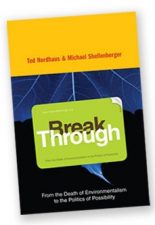“We face the most almighty hangover, as the toxins unleashed by our century-long binge work their way through the earth’s system. We have to detoxify. We have to sober up. We have to come to grips….”
from ‘Confessions of an Eco-Sinner’ by Fred Pearce.
Pearce has written a book for the ecologically and socially minded. He has travelled some 180,000 km to over 20 countries to research it; investigating the origins of products, and crucially the human conditions surrounding them – actually walking the walk and finding the answers to his own curiosity about things.
He describes the research, which took him a full year, and the resulting book, as “an odyssey to track his personal footprint”.
Was it worth it? The short answer is yes, absolutely. Despite ratcheting up a huge carbon footprint (and the author devotes a chapter to describe the efforts he took to remedy this, and to discuss the wider issues of buying carbon credits, recently regulated by the UK Government), Pearce has weaved together a fascinating, if sometimes disheartening, portrait of a world out of sorts with itself – a world of commodification and production that has no limits to its use of resources and to its exploitation of those engaged to serve the process – those around the world who become enslaved to the multi-national companies, the suppliers, the middlemen, and the ‘fast buck’ entrepreneurs who see an opportunity and seize it, no matter what the human or environmental consequences are.
Pearce, the senior environment writer for The New Scientist, explores the worlds of gold, coffee, and strawberry production; over-fishing in Mauritania, prawn cultivation in Bangladesh (section 6, ‘curried crustaceans’ might be enough to turn those of us of a non-kosher persuasion off prawn curries for life), palm oil, sugar, bananas, cocoa beans, and Kenyan green beans grown sustainably although consuming vast air miles…. among many other debates and topics and sub sections along the way.
It is a meandering ride, with diversions to explore what happens to London sewage, how tantalum (a rare metal, essential in mobile phone production) is a crucial component of modern life, and how computers can be reused in Kenya (although I’m saddened they won’t want this Apple when it comes time for me to part company with it).
Along the way Pearce imparts lots of interesting facts and figures – for instance that sugar cane production has caused the greatest loss of biodiversity on the planet due to soil degradation, a fact backed up by the World Wildlife Fund. Pearce finds thyme from both Israel and the West Bank for sale in Waitrose (a up-scale British supermarket), has a fascinating discussion with Grigory Levin, ex curator of a collection of 1,000 varieties of pomegranate held in Turkmenistan (who is now exiled in Israel) and is rightly critical of Israel’s export of 70% of its water supply through cash crops such as flowers, bananas and avocados.
Pearce takes a necessarily critical look at world water use, particularly in the developed nations, and is hard on himself too:
“My total water use … is 100 times my own weight every day. If everyone in the world had the same requirements as me, then that would work out at 13,000 cubic kilometres of water, which is only slightly less than the total amount of accessible water flowing down the world’s rivers in a year.”
Pearce is a compelling writer, winningly capable of throwing up issues that we as green consumers need to consider – I’m not yet convinced of the sustainability versus air miles issue, highlighted in the example of Kenyan green beans, which is a hot topic in organically certified and ‘local food’ Britain at the moment, but agree wholeheartedly on the need to support fairly-traded products predominantly.
Can anyone reading this import more fair trade chocolate into Israel? His tale of being asked by a cocoa farmers son in Cameroon “What does chocolate taste like?” should compel us all to become, in Pearce’s words “an ethical chocoholic.”
I recommend everyone who believes they have a social or green conscience to read this book. It is a warning shot across humanity’s bows, delivered by a thoughtful, altruistic writer who examines his own use of products and resources or footprint, on behalf of us all.
“We have to cut our carbon emissions in ways that do not impoverish the poorest – those whose personal carbon emissions are the lowest. We need fairtraders, not green patriots. We need to maximise our positive social footprints as well as to minimize our negative ecological ones. But we can do it.”
‘Confessions of an Eco-Sinner:
Travels to Find Where My Stuff Comes From’ by Fred Pearce
Published 2008 by Eden Project Books
Read other reviews from our ‘Summer Eco-Reads’ Festival:
Sandor Katz’s ‘Wild Fermentation’
Rabbi Jamie Korngold’s ‘God in the Wilderness’





Fred was here is Israel this past week, researching for his upcoming book on the subject of demographics. We spent a fascinating day together talking to Bedouin leaders in the Negev, and the next evening I interviewed him about his working life as one of the UK’s leading environmental journalists, the many campaigns around the world he has researched and highlighted, his reflections upon many visits to Israel and the Middle East, and his reflections upon Gaia, nuclear power, climate change & other core environmental issues of the day. I will post this interview exclusively on Green Prophet soon. Watch this space……
Wow. This book sounds incredible. Although it’s hard enough feeling guilty every time I eat tuna, salmon, etc., and this book may add to that list, it seems like an incredibly important read. Thanks for the thorough review. I look forward to reading it.